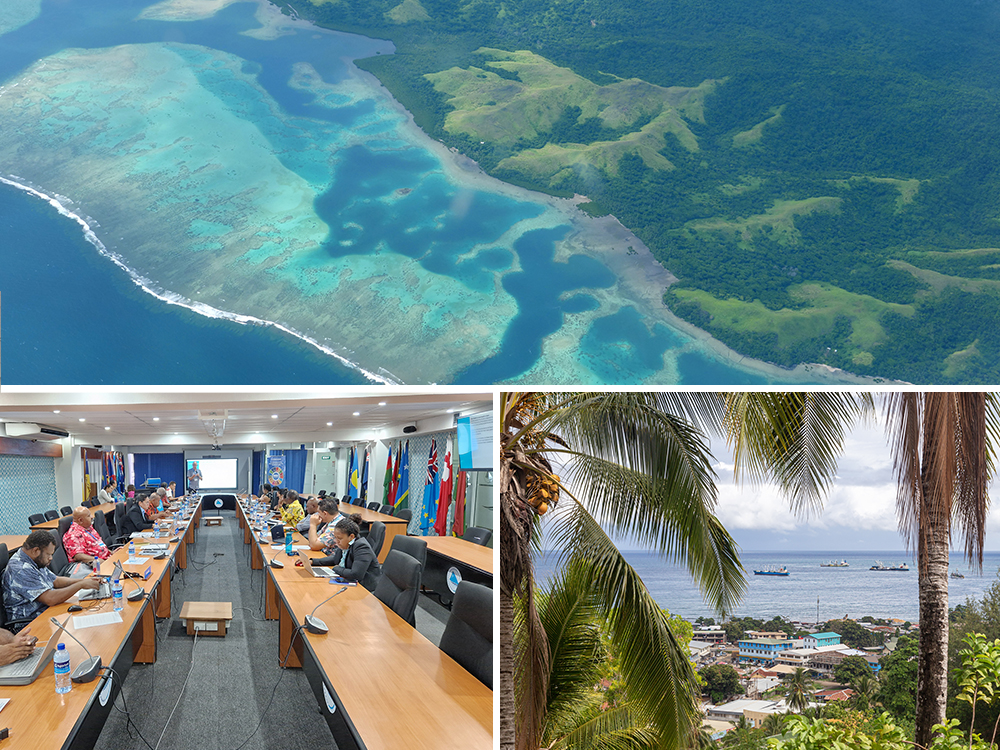A regional roundtable has been held in Fiji to discuss the collection of maritime transport costs data at the national level and the sharing of lessons learned. The event, held in Suva, brought together 31 stakeholders and focal points from Pacific Small Island Developing States (SIDS*). The forum was a collaboration between IMO, the Pacific Community (SPC) and the Maritime Technology Cooperation Centre (MTCC-Pacific), with funding from IMO’s Integrated Technical Cooperation Programme (ITCP).
The roundtable was part of IMO's efforts to support Pacific SIDS advance towards low-carbon shipping and underscores the role of South-South Cooperation in providing replicable solutions to challenges faced by IMO Member States in other regions.
Transport costs are particularly important in the Pacific region because it contains some of the States most vulnerable to climate change and which already face relatively high shipping and trade costs, due to their dependence on shipping for trade, including the importation of essential goods.
IMO is supporting Member States such as Pacific SIDS to ensure that short-, mid- and long-term measures in the 2018 IMO Initial Strategy on the reduction of GHG emissions from shipping do not impact them disproportionately.
During the two-day event (15-16 February) in Fiji, IMO introduced the IMO impact assessment process and gave an update on the Organization’s activities relating to greenhouse gas (GHG) reduction. The United Nations Conference on Trade and Development (UNCTAD) delivered a presentation on its perspectives on maritime transport costs, with a focus on Pacific SIDS.
Key outcomes of the roundtable include a “Talanoa”, a word used in Fiji and the Pacific to describe an inclusive and transparent dialogue through which experience and good practice can be shared.
Subjects discussed include the management of maritime transport cost data and the development of concrete recommendations on how to address existing data gaps, with a view to facilitating the assessment of impacts on Pacific SIDS of future GHG reduction measures.
Perspectives were shared from the Pacific region on what a “just and equitable transition” towards low-carbon shipping means.
The Initial Strategy recognizes that the impacts on States of a GHG reduction measure should be assessed and considered appropriately before adoption. But some countries face challenges in the preparation of impact assessments because of a lack data due to poor or minimal baselines.
To improve the availability of relevant maritime transport costs data for Pacific SIDS, IMO initiated a project in 2022 with MTCC-Pacific, funded through the IMO GHG TC-Trust Fund. The project was designed to facilitate future assessments of the impacts of candidate IMO mid- and long-term greenhouse gas reduction measures in the region, including, as appropriate, a possible economic measure.
* Cook Islands, Kiribati, Nauru, Samoa, Solomon Islands, Tonga, Tuvalu and Vanuatu
